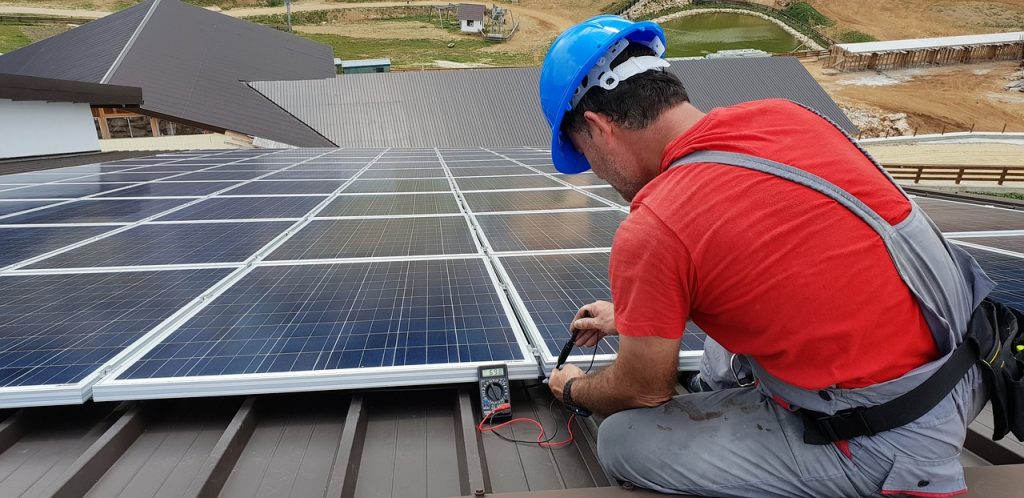Solar Panels Are Not Immune To Blackouts, But They Can Be If You Do One Thing
Solar Panels are tied to the US power grid, which means that they are not immune to blackouts, but if you install an off-grid system or a solar battery system, they can generate power even if the power goes out.
This article is more than 2 years old

Drive down any residential street, and you will likely see more solar panels than in years past. Many Americans are switching to the green energy source to save money and make their homes more eco-friendly. Unfortunately, the bad news is that even going green won’t necessarily ensure you retain power when the grid goes down.
The US has an aging power grid that cannot withstand the impact of significant weather events. As a result, Americans have struggled with an increasing number of power outages and blackouts recently. Some people have made the switch to solar panels in the hopes that they can avoid the next blackout.
However, a standard solar panel system doesn’t make you immune from power outages. The basic, most affordable solar panels still connect to the utility grid. So, when it goes down, your green system does too.
“Most solar systems are connected to the grid via a solar inverter. This is a meter that measures and tracks the amount of energy generated and used by your home,” according to CNET. The solar inverter serves two purposes.
First, the inverter will tap into the grid if your solar panels don’t produce enough electricity. That way, you don’t miss a beat while watching your favorite show or making dinner. But it also allows you to sell excess power to the electrical company.
Both are wonderful benefits. However, since traditional solar panels get tied to the grid, so they go down if the grid does. And that means bad news for you.
There is a way to avoid this, though. It is possible to detach solar panels from the grid. The only catch is that it requires a significantly higher investment.
That investment may be well worth it if you live in a high-risk area like California, down south, or along the eastern seaboard. And there are two ways to go grid-free, which is good news. That allows homeowners to select the most appropriate option.
One option is to install an off-grid system. However, this route is risky. Since off-grid solar panels aren’t part of the grid, there is no backup if they don’t generate enough energy.
Additionally, “they can’t participate in some of the unique payment schemes that on-grid solar systems offer, like net-metering: selling solar energy back to the utility company in order to cover the cost of any additional electricity used.” But, it could pay off for those living in a sunny location. At least they get to go about their day when the grid goes down.
Another option is to install a solar battery system. A solar battery stores energy collected during peak daylight hours. And then, when you need power (like at night), you have easy access to a source.
One major benefit of this system is that the battery will automatically disconnect from the power grid if it goes down. “This is called “‘islanding.'” Unfortunately, it is also a pricey system and may be cost-prohibitive for some homeowners.
So, if you live in an area plagued by blackouts, solar panels are not necessarily a viable alternative. Unless, of course, you are willing to invest in one of the off-grid systems. But given the precarious state of the US power grid, it may be a reasonable and logical investment.



